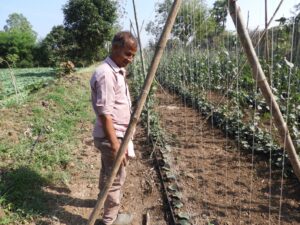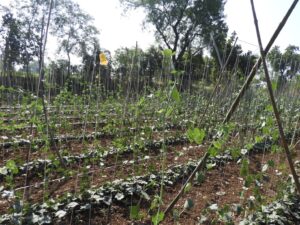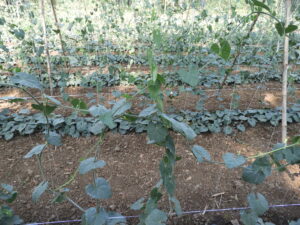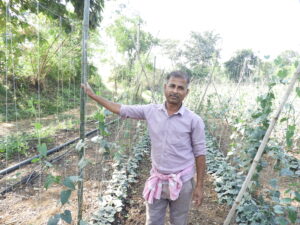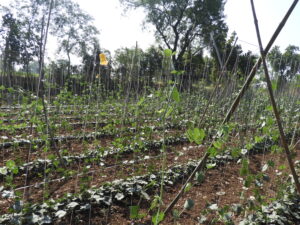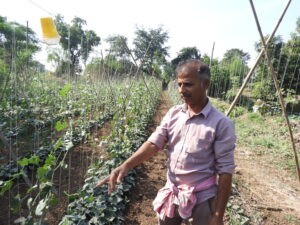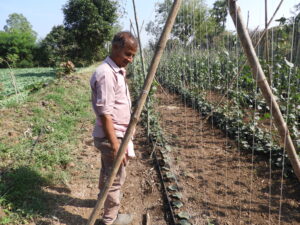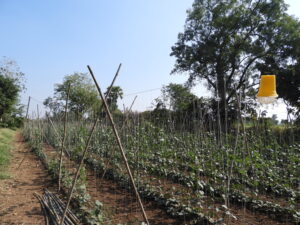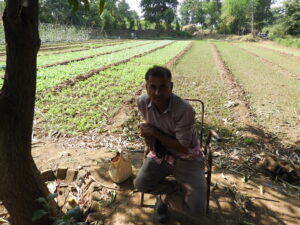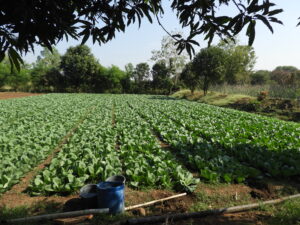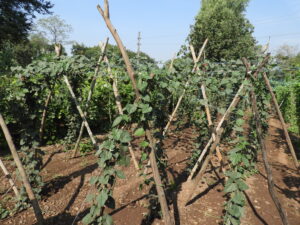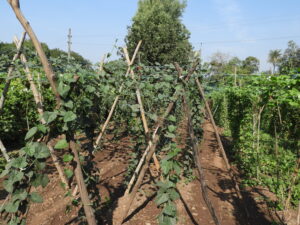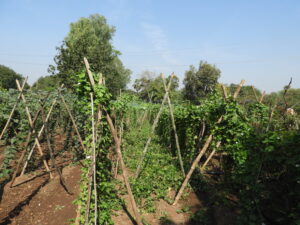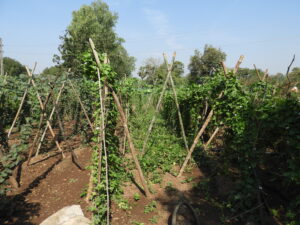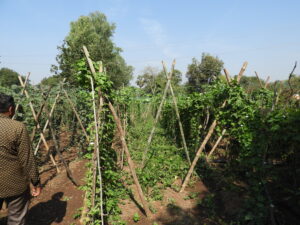Stories from the field
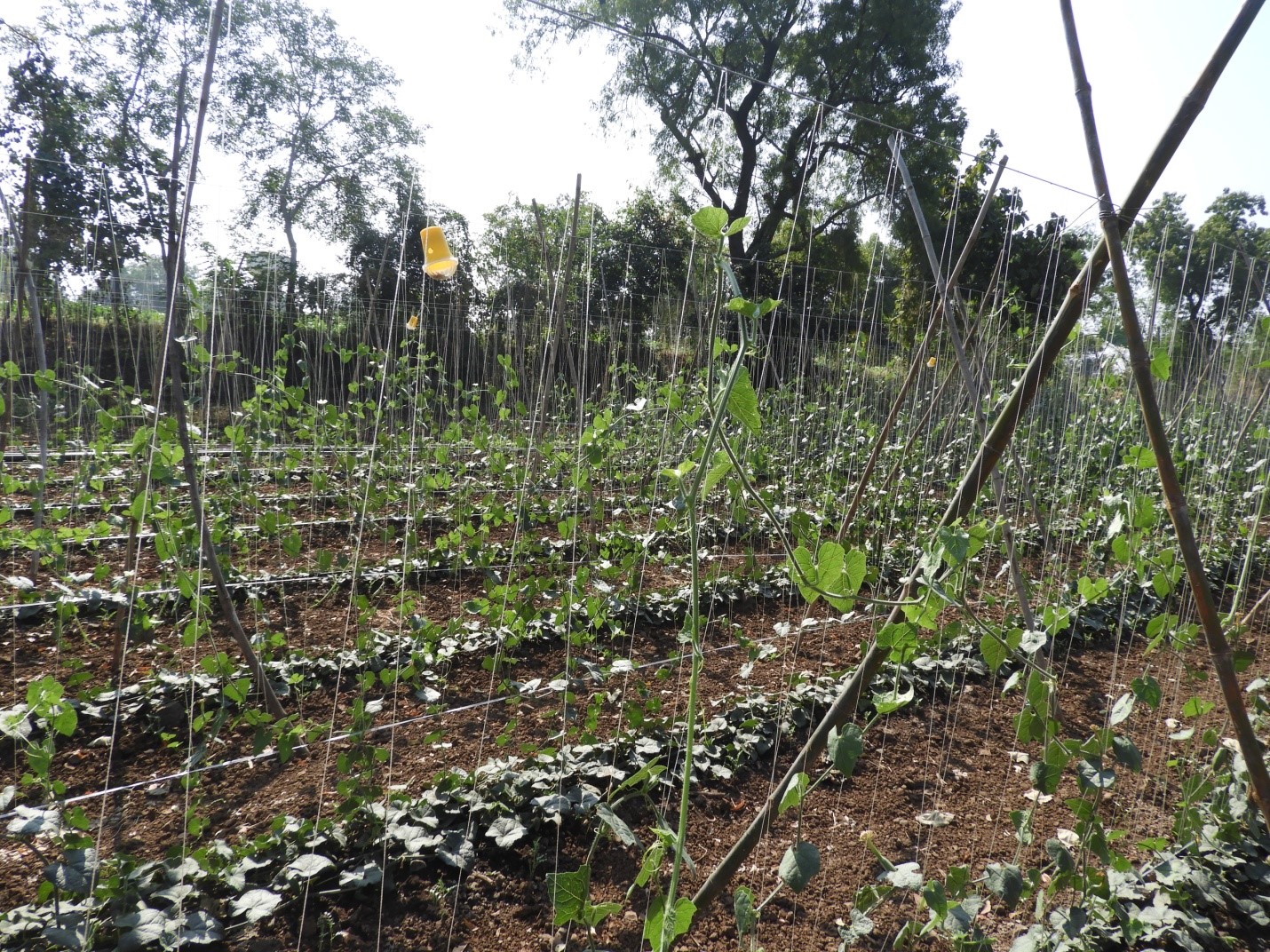
The Success of Creeper Vegetable cultivation in Chhotaudepur
Vegetable cultivation is a game changer to increase farm productivity and income enhancement of small and marginal farmers. This blog explores how creeper vegetable cultivation has benefitted this farmer from Chhotaudepur in Gujarat.
Jikeshbhai Rathwa is a 45-year-old farmer from Karajvant village in Kawant block in Chhotaudepur. He comes from a family of farmers who were involved in agriculture. However, disinterested in farming, he worked as a village sarpanch and leased out his land. Over the time, realizing the potential of agriculture, he resumed to farming operations and started cultivating crops on his own, a decision that changed his life.
The farmers of Chhotaudepur block long relied on traditional vegetable farming, primarily cultivating chili, tomato, and eggplant. While these crops provided a stable income, their economic potential remained limited due to market saturation and the absence of diversification. Recognizing the need for change, Shroffs Foundation Trust (SFT) introduced creeper vegetables such as Ivy gourd (Tindola) and Pointed gourd (Parvar) to tribal farmers, aiming to increase farm productivity and improve income stability.
Exposure and Knowledge Sharing
To equip farmers with innovative techniques, creeper vegetable cultivation was introduced in Chhotaudepur and Kavant blocks and farmers were trained in new farming techniques. Jikeshbhai was one among the beneficiaries who benefitted immensely.
Initially, Jikeshbhai cultivated cabbage, eggplant, bottle gourd, and cucumber. After learning about SFT’s initiative to support farmers with creeper vegetable plants, he approached them for the saplings. Although SFT initially provided him with 50 plants, he purchased 500 plants and dedicated 10 gunta (0.25 acre) to cultivate creeper vegetables.
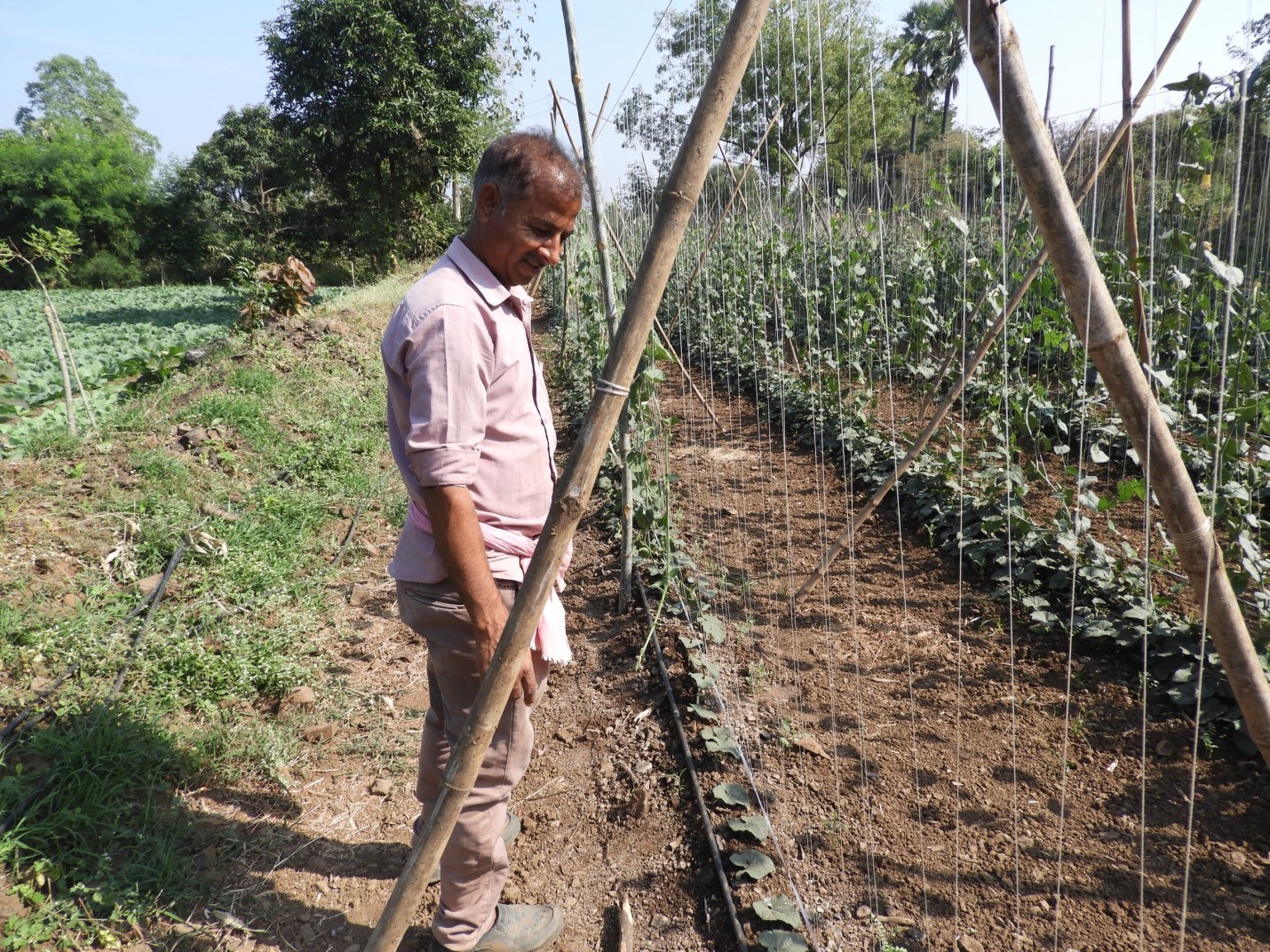
Overcoming Challenges and Adopting Sustainable Farming
Being new to creeper vegetable cultivation, Jikeshbhai faced initial challenges in cultivation. Results were not as expected, prompting him to try different techniques, such as using thread to support the climber. Additionally, he adopted organic farming methods, avoiding chemical fertilizers and pesticides. To combat fruit fly infestations, he implemented bait traps, effectively safeguarding his crops without harmful chemicals.
After five months of effort, Jikeshbhai successfully harvested approximately 60-70 kg of pointed gourd. Instead of transporting his produce to larger markets, he chose a community-focused approach—utilizing some for his family, sharing with relatives and villagers, and selling the rest locally, earning around INR 5,000.
A Vision for Growth
Jikeshbhai sees his journey with creeper vegetables as a continuous learning process. He actively researches farming techniques, watches online agricultural videos, and improves his methods to enhance yield and efficiency. Looking ahead, he aims to scale up his creeper vegetable farming, not only to increase his earnings but also to contribute fresh, chemical-free produce to his community.
Alka Dadheech works as a Research Executive with SFT, where she contributes in generating evidence to support livelihood and skill development initiatives.

